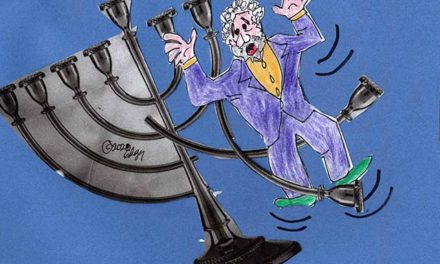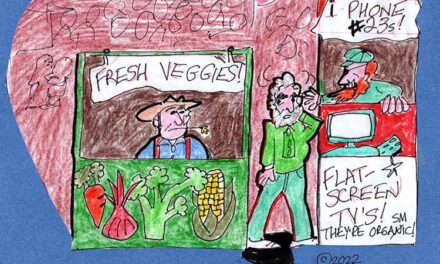Parents Find that College Tuition is Suddenly Negotiable
Some haggling experiences at street bazaars and car dealerships
By Ed Goldman
Discutir” (diss-coo-tier) was one of my favorite words to conjugate when I took Spanish classes in the fourth, fifth, seventh, eighth and ninth grades. It means “to discuss” or, more to the point, “to bargain.” I pictured myself becoming a worldly traveler someday, saying things like, “¡Qué va! ¡Ni en broma!”—in essence, “Go on! Not even as a joke!”—if street vendors in Mexico would try to get me to pay full price for, say, a death mask made entirely of spun sugar (this is a real thing—and often, a stunningly beautiful piece of craftsmanship).
But that never happened. I traveled and went to plenty of outdoor bazaars but whatever a vendor asked, I usually forked over. Despite the stereotype and possibly anti-Semitic exaggeration of Jews being superior bargainers, the haggle gene seems to have skipped past the hard-wiring of my brothers and me.
While I once did okay in getting a salesman, marinated in Jade East cologne, to lower the cost of a new car—after he checked with his non-existent “manager in the back,” apparently forgetting he himself was wearing a name tag that identified him as the manager, as did a photo of him hanging on the wall of the showroom—I was certain that once I drove my purchase off the lot he laughed his head off and carved another notch on the gold band of his Rolex.
I thought I was being dashingly clever in 1981 when a Volvo salesman told me he himself drove the new car I was considering. “Really?” I asked, with one eyebrow raised high enough to intercept WIFI transmissions in the Himalayas. “Where do you park it? I’d like to see it.” He smiled and escorted me to the employee parking lot where, sure enough, he unlocked the door of a car identical to the one I intended to buy, except for the color. “I personally like a burgundy exterior,” he said, “but I think the metallic bronze one you selected is incredibly rich looking. Are you an artist, Mr. Goldman?” I smiled modestly, mumbled something like “I try” and felt chagrined—which didn’t get any better when, driving home my new 1981 metallic bronze Volvo, it occurred to me that all of the salesmen at the place drove the cars they sold. It may even have been a job requirement for them.
What brings all of this to today’s essay is a recent front-page story in the Wall Street Journal about parents starting to negotiate their kids’ tuitions with colleges big and small—and, miraculously, winning.
“Many colleges customize tuition-and-aid offers to extract the maximum from each prospect without driving the student to a rival campus,” the article reported. “An industry of enrollment management consultants uses computer algorithms to advise administrators on each prospect’s ‘price sensitivity.’ Families, in turn, are turning to consultants who, using their own algorithms, specialize in coaching them on strategies to squeeze more money out of colleges.”
I need to insert here that ever since I founded my own marketing consultancy in 1982, I’ve frequently felt a tinge of regret when I read about a new consulting niche. Like “enrollment management.” I’d hit myself up the side of the head for not having thought of it. It’s a similar gesture to one the guy makes in old print and TV ads after he pops open a can of soda and laments, “I coulda had a V8!” He isn’t referring to a car with a larger engine (my Volvo was a V-6, by the way) but rather a juice drink of allegedly eight blended vegetables, a product less tangy than Pepto Bismol.
One of the reasons parents are feeling like master negotiators these days, and colleges and universities are enduring a rare attack of humility, is the Covid-19 pandemic (also called the Death to Dining Dictum). After all, it’s a little absurd for an academic institution to stick to a pricing model that would have included tuition and board when the kids won’t be attending classes in person this fall and, therefore, neither sleeping nor eating at school (though sleeping and eating in class will continue, but at home). So they’re rolling out discounts, while savvy moms and dads are doing comparison shopping.
Already working as a newspaper reporter at the time, I wrote a piece about Betar’s proposal. It prompted a wave of responses, mainly from CSU’s administration. Since Betar was as tenured and respected a prof as you could get, the letters were in a seemingly light vein, as if the underlying message in all of them was something like, “Oh, that George Betar is at it again!” Or better still, “¡Qué va! ¡Ni en broma!”
Ed Goldman's column appears almost every Monday, Wednesday and Friday. A former daily columnist for the Sacramento Business Journal, as well as monthly columnist for Sacramento Magazine and Comstock’s Business Magazine, he’s the author of five books, two plays and one musical (so far).











